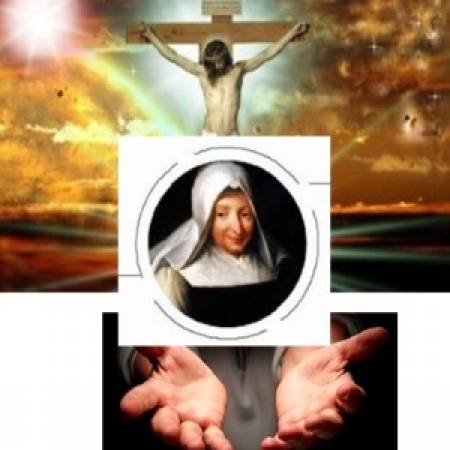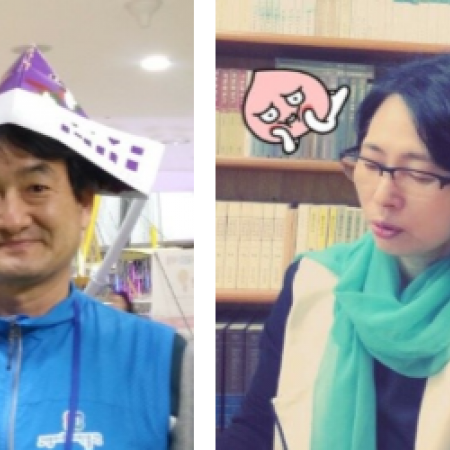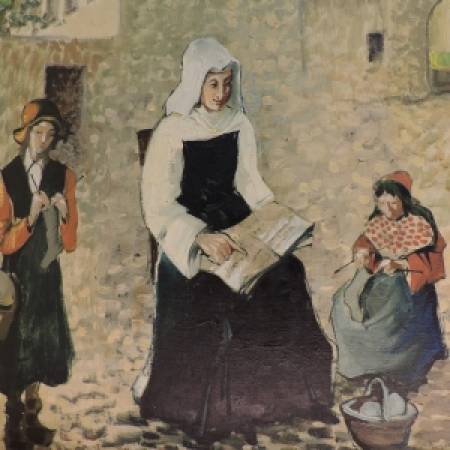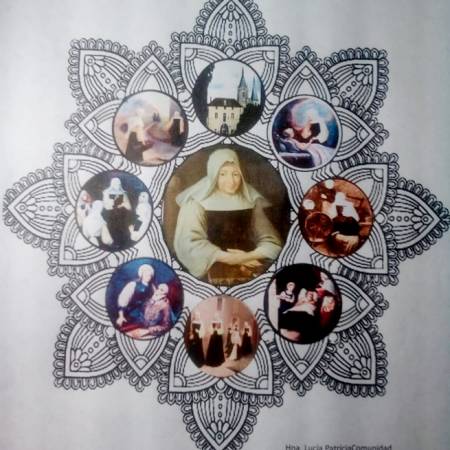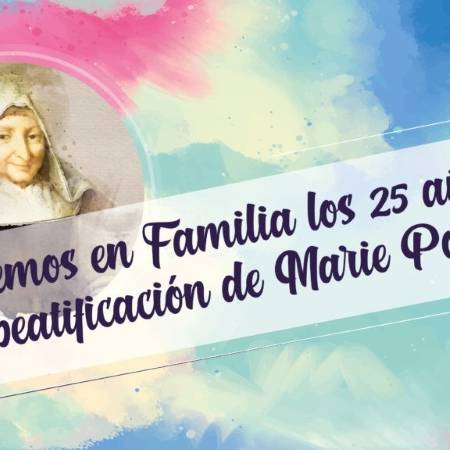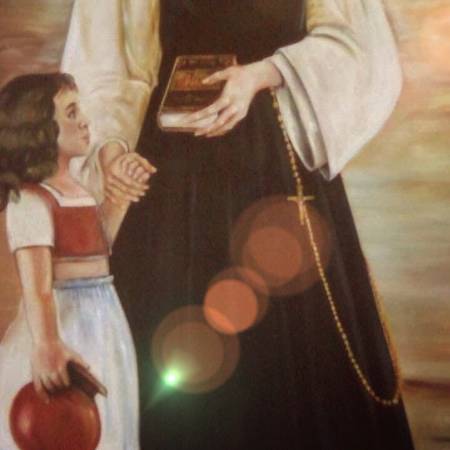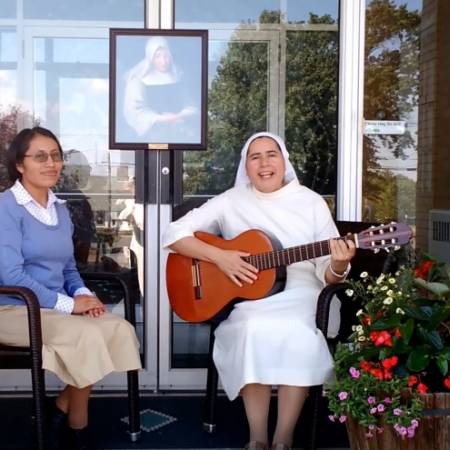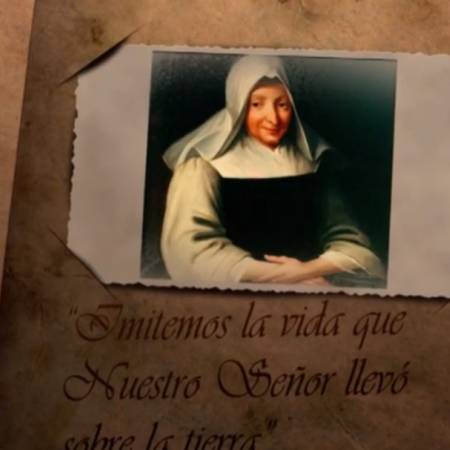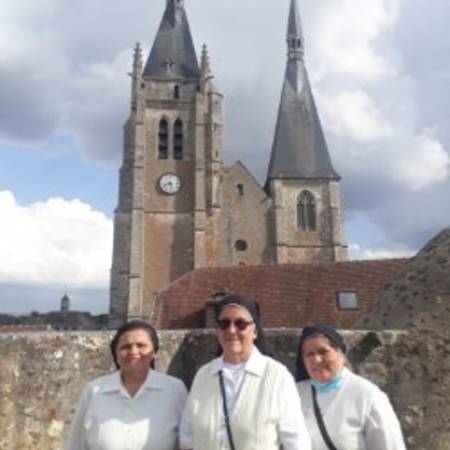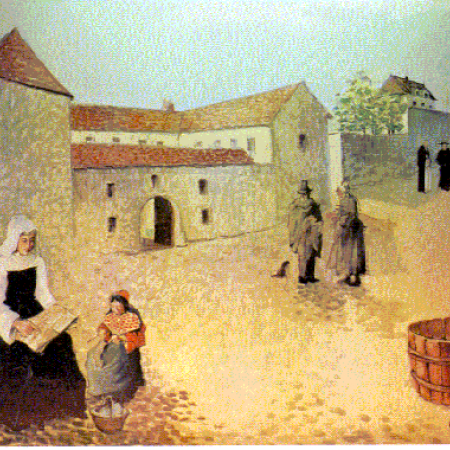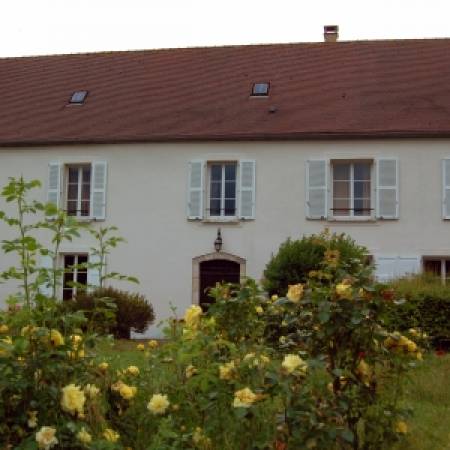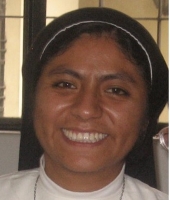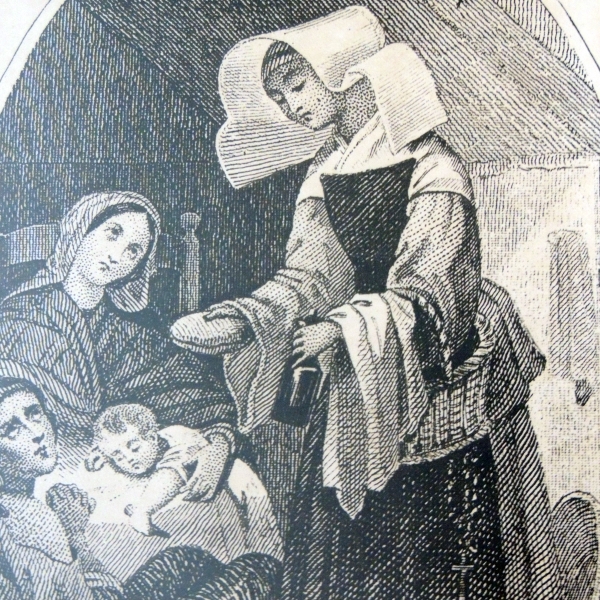“Here is your brother/sister and he/she is waiting for you”, Marie Poussepin understood from a very young age that charity moves us as persons, inviting us to come out of our indifference and comfort seeking nature to go and meet the other.
The culture of proximity and encounter is an expression that, although not explicit in the writings of our Foundress and in the texts that speak of her, was a constant experience throughout her life.
This reflection that I want to share with you has three points: The inspiration from the Sacred Scriptures and the invitation of Pope Francis and three founding experiences from the life of Marie Poussepin. This will enable us to see how she lived “the culture of encounter” and to hear today our call to be women of encounter.
From the Holy Scriptures and invitation of Pope Francis:
The “culture of encounter” is not something new in the world or in the Church, since it has its foundation in Jesus. The four Gospels present us the different encounters of Jesus with persons and crowds, showing in each one, a constant attitude of openness that makes this event an experience of transformation.
- Jesus’ encounter with Zacchaeus. (Lk. 19:1-10) Zacchaeus, who wanted to meet Jesus, climbs on a tree; Jesus is moved when he sees him and he not only tells him to come down so to greet him, but also says to him that he will stay in his house. It was a transforming encounter; Zacchaeus feels the need to share with the poor and give back all that he has acquired dishonestly.
- The meeting of Jesus and the Samaritan woman (Jn 4:1-29). He begins the dialogue, asking for a little water to quench his thirst. He receives a discriminatory response, there are barriers between Jews and Samaritans. But this does not stop Jesus from continuing his conversation. How fruitful this meeting was! It went beyond a discriminating and rejecting response and led to the conversion of an entire people.
- The meeting of Jesus and the widow of Naim (Lk 7:11-17). A meeting between a man and a Woman, between an only son, alive and an only son, dead, between a happy crowd, because they had found Jesus and were following him and a group of people who were crying, as they accompanied the woman. Faced with this reality, the text tells us that “when the Lord saw her, he had compassion on her” and he approached her, spoke to her and touched the bier, and “the dead man stood up.”
All these encounters that are narrated about Jesus reveal his capacity for communication, closeness, tenderness, mercy and compassion and the adequate use of word and language to reach the other. Each encounter that Jesus had, was fruitful and transforming.
In Jesus, everything starts from a look, from contemplating and letting himself be moved, entering into a dialogue by overcoming barriers of indifference and welcoming the other in all his/her reality. This is how Marie Poussepin understood it. She saw and was moved; she let herself be touched by the reality, going out to meet “the orphan girls and the poor sick”.
“Culture of encounter” is one of the main phrases that expresses the pontificate and actions of Pope Francis. In his Apostolic Exhortation Evangelii Gaudium, he invites us to move from a “throw away culture” to a “culture of encounter”.
“How can it be that it is not a news item when an elderly homeless person dies of exposure, but it is news when the stock market loses two points? This is a case of exclusion... Today everything comes under the laws of competition and the survival of the fittest, where the powerful feed upon the powerless. As a consequence, masses of people find themselves excluded and marginalized […] We have created a “throw away” culture […] The excluded are not the “exploited” but the outcast, the “leftovers”. EG 53.
Faced with the reality described, Pope Francis invites us to “revalue the predominance of the human beings above everything else and go out to meet the other”. ”The Church as it emerges, is a community of missionary disciples who take the first step, who are involved […].The evangelizing community knows that the Lord has taken the initiative, he has loved us first (see 1 Jn 4:10); and therefore we can move forward, boldly take the initiative, go out to others, seek those who have fallen away, stand at the crossroads and welcome the outcast.” EG 24.
Pope Francis invites us to take the risk of encounter, to seek the face of the other. It is a matter of coming out of comfort: “We are always capable of going out of ourselves towards the other” […] Disinterested concern for others, and the rejection of every form of self-centeredness and self-absorption, are essential if we truly wish to care for our brothers and sisters and for the natural environment. LS 208
This is the challenge that confronts us by the “culture of encounter”, which is far from being just a concept; it means a new way of living and acting in relationship with “the others”.
Poverty, exclusion and discrimination hurt the dignity of the person; this is how Marie Poussepin perceived it; she could have continued her prosperous life in Dourdan, going out to meet the most needy through the Confraternity of Charity; but no, she decided to go one step further; she decided to go beyond and let herself be transformed by the cry of the most vulnerable.
The proximity and encounter in Marie Poussepin:
“The restlessness of love is always an incentive to go towards the other, without waiting for the other to manifest his/her need.”. This expression taken from the document “Rejoice,” by the CIVCSVA, in the Year of Consecrated Life, summarizes precisely what impelled our Foundress to live “proximity and encounter” throughout her life. Charity motivated her and led her to empty herself, make charity “the soul of her community” and exhort her sisters to do what “charity would inspire them”.
-The Confraternity of Charity:
From the writings about the life of Marie Poussepin, we learn that her mother belonged to the Confraternity of Charity, “an association whose aim was: to serve the sick poor, to give them food every day and to provide them with spiritual help”.
Marie Poussepin accompanied her mother to visit the sick since early years (10 years). This was her first significant experience of service and closeness to the poor. We can imagine this scene: a little girl for whom it may not have looked very attractive to visit the sick because of her age, accompanies her mother nevertheless, to visit them with promptness, availability and tenderness and leaves her comforts to meet the others and accompany them in their pain.
From that moment on, in the life of our foundress, the conviction of “how much a person is worth” is being strengthened. She begins to cultivate closeness, tenderness and compassion and to understand and learn what it means to "be close to the other".
-An act of emptying herself and going out of self: Marie Olivier:
Another significant experience lived by Marie Poussepin, in which we discover her proximity and capacity to feel with others, to go out of herself and give herself to the most needy, is that of welcoming Marie Olivier, a sick and poor widow, who was suffering the consequences of the terrible Winter of 1693-1694. Marie Poussepin had no qualms about taking her home, lodging her in her room and putting her in her own bed and taking care of her personally until death.
The person of faith goes forward, meets others, becomes “close” and not only sees, but contemplates, not only hears, but listens and is not content just to stop, but, moved by compassion, takes the initiative and acts.
-From Dourdan to Sainville:
The year 1695 marked the life of Marie Poussepin. France was suffering from the consequences of war, epidemics and famine. It was this reality of misery in general that Marie Poussepin contemplated in the village of Sainville., situated seventeen kilometers from Dourdan. Hunger, disease and poverty touched and mobilized the heart of our Foundress, who at the age of 42 decided to go out to meet the most vulnerable: “many children and adolescents who were orphans, without shelter and without assistance”.
After many years, a witness would say: “that he saw her arrive in Sainville with the intention to establish little schools there and to take care of the sick poor, which for twenty-eight years, she has been doing with great dedication, since she is full of charity, particularly for the sick poor whom at present she assists and provides with food…”
In Marie Poussepin, the culture of encounter begins by contemplating and recognizing a brother/sister in the other, going out to meet him/her, approaching him/her, healing his/her wounds and accompanying him/her in his/her needs. (Lk 10:34-35).
From these three founding experiences in the life of Marie Poussepin, we can identify gospel values in her, fruit of a personal encounter with Jesus, which makes her ready to go out to meet her brothers and sisters.
With a contemplative and committed look, which recognizes the other person as a brother or sister and understands him/her in his/her reality, letting go of prejudices and fears and taking risks to always go beyond one’s own interests, with the tenderness and compassion of Jesus - this is how Marie Poussepin lived the culture of proximity and encounter, taking up the challenges that arise when one leaves comfort and self-reference, to become a companion on the journey, listening to the joys and sorrows of people and individuals and making each encounter with the other a fruitful and transforming one.
Called to be women of encounter:
We have been “found”; his love has touched us and changed our lives. “Whoever truly finds Jesus cannot remain as same as before […] Those who experience this encounter become witnesses and make the encounter possible for others; they also promote the culture of encounter, avoiding the self-referentiality that makes us stay closed off within ourselves.”[1]
The letter to the Hebrews reminds us that Jesus himself, in order to meet us, did not hesitate to share our human condition. Jesus did not save us “from outside”, he did not remain outside our drama of life, but he wanted to share our life.
Marie Poussepin, prompted by Providence, was not afraid to leave her home to go and meet the poorest, she bore the pain of those who were suffering; she responded with courage, overcoming the obstacles and misunderstandings that were presented to her.
Today, each of us is called to follow in her footsteps and build a culture of encounter, based on the relationship style of Jesus, in a reality that is becoming more and more complex, fragmented and hurting. It is urgent to create a culture which enables us to enter into dialogue, and which goes beyond prejudices, a culture of encounter that prepares us to live together, to give and receive. To do this we need to review our personal and community lifestyles, avoid self-reference and let the Spirit move us and do what Charity inspires us.
For Reflection:
-Marie Poussepin responded to the reality of her time – a situation of poverty, ignorance and illness due to epidemics and harsh Winter - with audacity, courage and tenderness. She went out to meet the most vulnerable, becoming close to them. Today, during this Year of Grace, we, the Dominican Sisters of Charity of the Presentation find ourselves faced with a painful reality, marked by sickness, death, needs and uncertainties.
How can we go out to meet our brothers and sisters, especially the most vulnerable, when, due to the situation we are living in, we cannot physically go out to be with them?
- “He who communicates becomes a neighbor, close to us” says Pope Francis. The digital space, becomes for us in these moments, a “place” of encounter, a way of approaching others.
How can we put digital communication at the service of an authentic culture of encounter, in the face of this situation of social isolation that we are now experiencing?
-What attitudes do have to promote in our personal and community life and in the living out of our charism, in order to foster the “culture of encounter”, based on the relationship style of Jesus and Marie Poussepin?
- Let us identify in each of our communities, where and towards whom our steps are being directed? What situations or realities invite us to go out to meet others?
Sr. Rocío del Pilar Cuéllar Dávalos is a sister from Peru, from the Province of Los Andes. She has 16 years of Consecrated Life and is a nurse by profession. At present, she is part of the Provincial Council and is a member of the community of Camporredondo in the Peruvian Amazon where she is also the local superior.
[1] Homily of Holy Father Francis on the Jubilee of Consecrated Life, February 2, 2016


 EN
EN  ES
ES  FR
FR 




